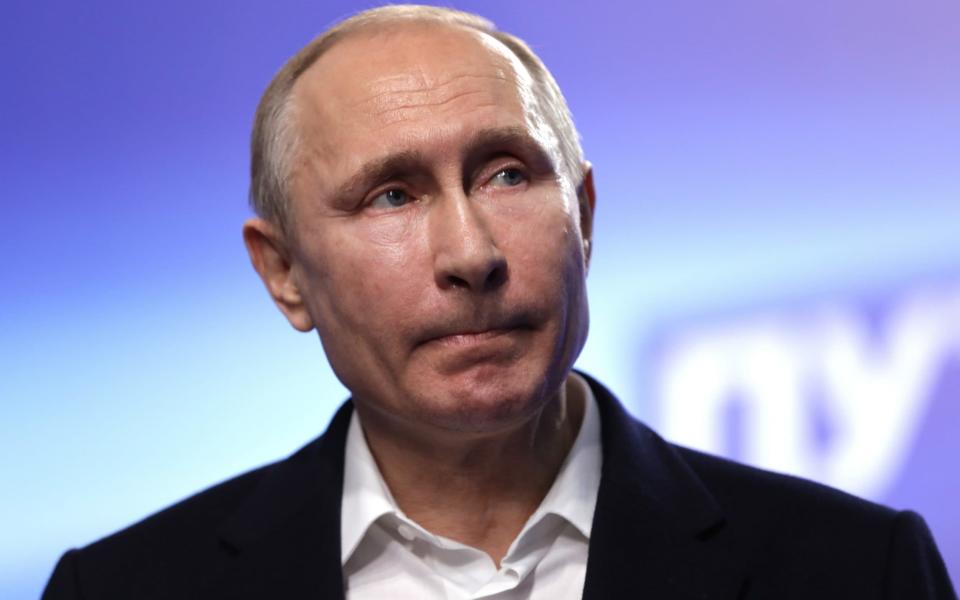Salisbury spy attack: EU backs UK and demands Russia answer questions over 'reckless and illegal act'

The European Union has formally backed Britain over the Salisbury spy poisoning and said Russia must “address urgently” questions over the “reckless and illegal act”.
The bloc has issued a joint statement in which it said it “takes extremely seriously” the UK’s conclusion that it is “highly likely that the Russian Federation is responsible".
The statement represents a major diplomatic boost for Theresa May, the Prime Minister, as she continues to seek the support of Britain’s international allies in the wake of the nerve agent attack.
The statement came as Boris Johnson, the Foreign Secretary, accused Russia of “trying to conceal the needle of truth in a haystack of lies and obfuscation” as he arrived in Brussels to brief his EU counterparts.
Meanwhile, David Lidington, the Minister for the Cabinet Office and Mrs May’s de facto deputy, said Britain will consider taking further action against Russia as chemical weapons experts arrive in the UK to test samples of the Novichok nerve agent.
Vladimir Putin, the Russian president, dismissed suggestions that the Kremlin was behind the poisoning as “nonsense”.
The statement issued by the EU’s Foreign Affairs Council is likely to pile even greater pressure on Moscow.
It states: “The lives of many citizens were threatened by this reckless and illegal act. The European Union takes extremely seriously the UK Government's assessment that it is highly likely that the Russian Federation is responsible.
“The European Union is shocked at the offensive use of any military-grade nerve agent, of a type developed by Russia, for the first time on European soil in over 70 years.”
It adds: “The Union calls on Russia to address urgently the questions raised by the UK and the international community and to provide immediate, full and complete disclosure of its Novichok programme to the OPCW.”
The foreign ministers also expressed the EU’s “unqualified solidarity with the UK”.
However, the EU's statement was not as strong as the one issued by the leaders of France, Germany, the US and the UK last week which said there was "no plausible alternative explanation" for the attack.
Inspectors from the Organisation for the Prohibition of Chemical Weapons (OPCW) were due to arrive in the UK on Monday to test the nerve-agent but the results are expected to take at least two weeks.
Mrs May expelled 23 Russian diplomats last week after she said there was “no alternative conclusion other than that the Russian state was culpable” for the poisoning of former double agent Sergei Skripal and his daugher, Yulia.

Moscow responded by expelling 23 British diplomats, prompting speculation over whether the UK will engage in tit-for-tat action.
Mr Lidington signalled that the UK could respond with further measures.
He told LBC radio: “The National Security Council will consider as appropriate what other action might be necessary and might be effective.”
The National Security Council is scheduled to meet on Tuesday morning.
Mr Lidington’s intervention came after Mr Putin was successfully re-elected president of the Russian Federation and dismissed claims of Moscow involvement.
He said that Mr Skripal and his daughter would have died instantly if they had been attacked with a nerve agent.
Mr Putin, who secured a fourth term amid widespread claims of electoral fraud, said: "The first thing that comes to my mind is that should it really be a warfare agent, people would have died instantly.
"It is an obvious fact. Russia does not possess such agents. We have destroyed all our chemical arsenals under control of international observers."
Mr Putin also insisted that Russia is “ready for cooperation” and to help with the Salisbury investigation.
Mr Johnson was due to update EU counterparts on developments in the attack before holding talks with Nato secretary general Jens Stoltenberg.
Mr Johnson accused Russia on Sunday of stockpiling Novichok for a decade in breach of international rules.
Arriving in Brussels, Mr Johnson said: "At one time they say that they never made Novichok, and at another time they say they did make Novichok, but all the stocks have been destroyed ... but some of them have mysteriously escaped to Sweden, or the Czech Republic, or Slovakia, or the United States, or even ... the United Kingdom.
"I think what people can see is that this is a classic Russian strategy of trying to conceal the needle of truth in a haystack of lies and obfuscation.
“What really strikes me talking to European friends and partners today is that 12 years after the assassination of Alexander Litvinenko in London, they are not fooling anybody any more.
"There is scarcely a country around the table here in Brussels that has not been affected in recent years by some kind of malign or disruptive Russian behaviour and that is why I think the strength and resolve of our European friends is so striking today.”

 Yahoo News
Yahoo News 